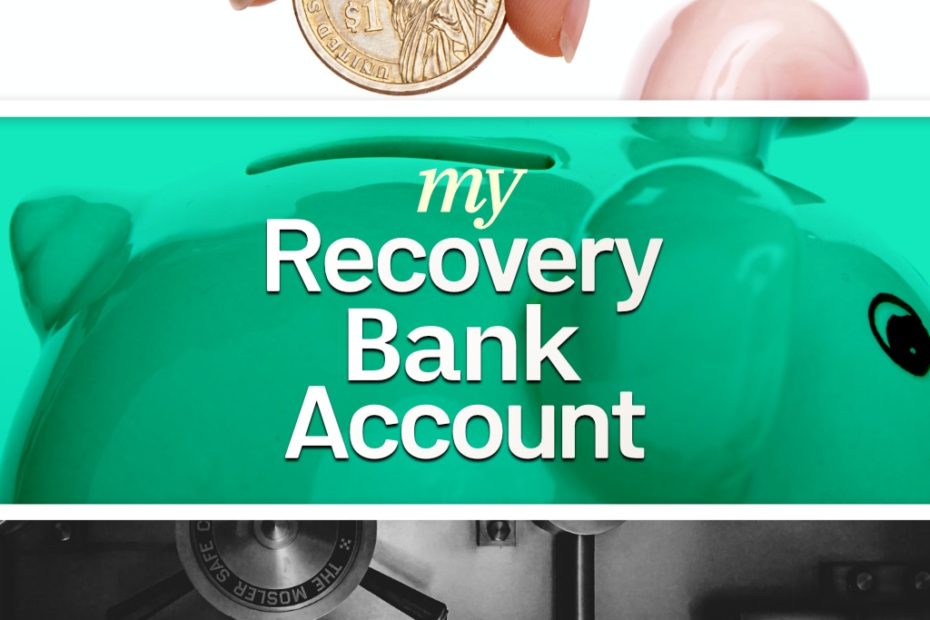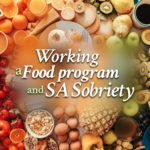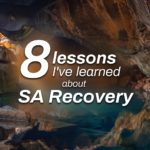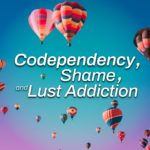Hey everybody, I’m Michoel and I’m a sexaholic.
What’s this, no applause?
Anyway….
On the day of my first meeting, I found myself sitting in the office of a long-term sober member. It was the first time I’d ever told another human being about my problem.
He told me many things, but one line in particular struck me. He was telling me about the addictive process. And then he said something that really struck me: “being an addict means that over time a sort of pressure builds up inside you. And when a pot of water gets hot enough – nothing can stop it – it boils.” I really related to that idea. That’s exactly how it felt. I really did feel like pressure was building up inside me. And when it built up enough, that repressed power would burst forth, easily toppling whatever meager defenses I had constructed, and I acted out. I couldn’t not act out. When that time came, the slightest thing could set it off. “Our so-called will power becomes practically nonexistent… we were without defense against the first drink” (AA p. 24)
That to me is the addictive process in a nutshell. Unless I can somehow break out of the cycle, and prevent the pressure from building up to begin with, I will always act out, forever.
Our program offers the tools to relieve this pressure, so the “pot never boils”. And I’d like to share a specific attitude that helps me work my program, one day at a time.
The Recovery Bank account
I don’t actually remember who I first heard this from, but it has become absolutely vital to my program.
Imagine this:
- You have a bank account. Instead of money, it stores “actions of recovery” (we’ll get to those in a minute).
- Every recovery action you do goes into the account.
- Now, lust has “stolen your card”, and makes regular “purchases”, whether you like it or not. So the account balance will slowly but steadily decline on its own. It cannot stay full without me constantly depositing more actions.
- I can add sober actions much faster than they’re taken away. In this way I can quickly build up a nice balance.
- As my balance grows, I’ll feel more comfortable, serene, and connected. My need for lust will decrease. I’ll be less “thirsty”. My internal ”addict pressure” goes down.
- If I stop adding new actions, my balance will begin to shrink. My discomfort and anxiety go up. My pull to lust increases. That pressure builds up again. After a while I’m in “dry drunk” territory.
- If the account hits zero, the “water boils”. The dam breaks. I will immediately act out at the first opportunity. (If I haven’t acted out yet, the account is not yet empty, top it up while there’s still time!)
- And every time my balance drops, all it takes is some more sober action to get me back to a good place.
If I’m working my program just enough to keep above zero, I’ll just barely stay sober. But If I work a strong, well rounded program under the guidance of my sponsor, my “recovery balance” will grow, and it will keep me at a comfortable distance from acting out. (While lust temptations will still pop up, the chance that I will act on them is very small)
Finally, if I keep up a steady stream of program actions, under the guidance of my sponsor and Higher Power, I will stay sober forever, God willing.
Now, a few important points.
What are these “actions of recovery?”
An “action of recovery” is exactly that: an action that furthers my recovery.
Here are some examples:
- Making phone calls and honestly sharing what’s going on
- Putting time into the Step work my sponsor has assigned me
- Explicitly sharing my secrets (the harder and more shameful, the better)
- Honestly checking in with my sponsor
- Following my sponsor’s directions (especially when I don’t want to)
- Making time for and working with sponsees (if my sponsor says I’m up to that)
- Taking actions of service (especially at home, or when nobody sees me)
- Talking to my Higher Power in my own words
- Trusting my Higher Power
- Attending meetings
- Making amends when I harm someone
- Program writing (such as fear & gratitude lists, “spot check” inventories when disturbed, Step 11 inventories at night, letters to God, etc.)
- Working on my character defects, like trying to be responsible at work instead of wasting time
- Self-care: eating a good breakfast, going for a walk or working out, sleeping well, or letting myself relax in healthy ways (like enjoying a fun show, good music, a game night with friends, etc.)
- Taking the actions of love towards others in my life (like taking out the garbage, leaving love notes for spouse or kids, buying someone a birthday present, making sure the bathroom is clean when I leave, etc.)
- Taking “outside actions” that are important to my recovery and that my HP is proud of, like going to my therapist, psychiatrist, clergy, religious services, yoga, etc. Whatever helps my program!
- Writing an article for this blog (yes, that was a shameless plug. You can do it! hint hint, nudge nudge ?)
- Most powerful of all – Step 12 work! Working with newcomers and relapsing members: sharing my experience with them, answering their questions, being supportive, and being available to their calls. (Even if I’m sober one day, I can still help someone with less than a day)
- Anything else you find that has a positive effect on your recovery
I don’t have to do ’em all, but more is better!
(If you check out our Daily Recovery Routines article, try counting how many sober actions per day our really sober members take! Why are they really sober? Your guess!)
Some more points:
Some actions are more powerful than others
I’ve found that the more difficult or uncomfortable the action is, the more “sober power” it has.
Chatting with a close program friend is fine, but sharing my story with a newcomer is more powerful – for both them and me. Sharing in a meeting is nice, but if I instead lead with my weakness, and share something I’m ashamed of with everyone in the room, that releases an extraordinary spiritual force that I feel for days afterward. (In general, if I’m turning red and possibly sweating by the end of my share, it was probably a good one!) The more difficult the amends, the greater the relief. Talking to my HP on my knees at length about someone I’m obsessed with is much more effective than quickly mumbling “God bless them”. And so on. “The measure we gave was the measure we got back” – big actions bring big results!
But the small ones are great too.
My balance decreases when I neglect it
Alas, my balance doesn’t last long! If I’ve taken a bunch of sober actions, I feel great (a meeting, called my sponsor, and 5 calls! woo!). But by the next day, my degree of spiritual connection has already started to fade a little. I need to freshen it up with new action every day to stay comfortable. If I don’t, my balance will decline, and I’ll begin to feel worse. After several days of inaction, I’m beyond isolated and am getting painfully close to the “edge of the cliff”. After a week or two, I face almost certain relapse. Indeed, about 6 months ago I badly neglected my program for about 2 weeks, and nearly lost my sobriety as a result.
Fortunately, I have merely to pick up the “kit of spiritual tools” to get right back on track!
What about the Steps?
My first sponsor used to tell me – “do you only want dessert, or do you also want the main course?”. I obviously won’t “enlarge my spiritual life” (AA p. 35) if all I do is make phone calls – I need the Steps to clean me out and show me how to live.
My experience with the Steps is that working them makes me feel much better. Steps 4-9 clean away my past, which makes me much more comfortable in the now. However, it is just as important that I continue to work my daily actions, which include the attitudes of 1-2-3, and the actions of 10-11-12. If you look over the above list of recovery actions, they’re almost all either actual Step work, or “practicing these principles in all our affairs”.
The Steps are not a one time process. They are a “whole new way of life” that I must practice every day if I want to remain comfortable, serene, and yes, sober.
Conclusion
In short: It’s a program of action! Take lots of them!
And finally:
- I don’t need to do it perfectly – in fact, I’ve personally been slacking off on my program the last few days, so I’m gonna need to make some calls after this 😉
- If I let things slide a little, I don’t need to beat myself up. I just need to boost my balance back to a good place with some new actions, that’s all.
- I may not feel perfect every day, even with a good recovery balance. But at least until the negative feelings pass, I won’t be at risk of relapse. I can try to feel and accept my emotions instead. In time, my moods usually turns around.
- And if I want to feel more connected, comfortable, and serene, all it usually takes is a little more action.
A question to ask myself – how’s my recovery bank account? Is it full? Close to overdraft? Shrinking? Growing? What can I do regularly to get myself a healthy recovery account?
I wonder if this is along the lines of Dr. Bob’s saying “I spend a great deal of time passing on what I learned to others… every time I do it I take out a little more insurance for myself against a possible slip.” (AA p. 181). Sure enough, Dr Bob never stopped passing it on, and he never slipped either.
When my “bank account balance” is good, I feel great. And when my recovery is healthy, I hope it helps me be of use to others as well.
I hope you find this idea helpful in your own recovery!
? New Article every Monday!
Join our weekly email list to get all our future articles, directly to your inbox!
[mailjet_subscribe widget_id=”2″]



